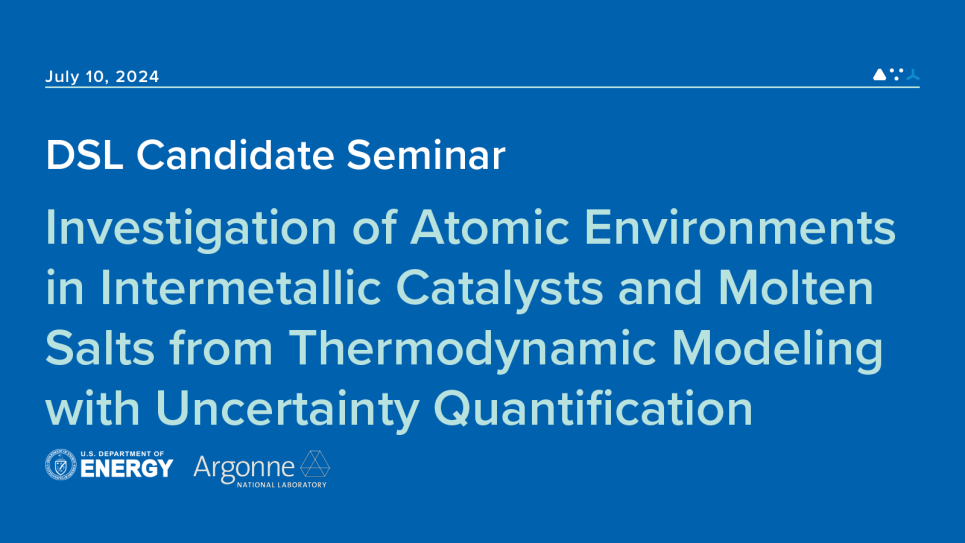
Investigation of Atomic Environments in Intermetallic Catalysts and Molten Salts from Thermodynamic Modeling with Uncertainty Quantification
Understanding atomic environments is essential for optimizing the performance and properties of materials by providing insights into structure-property relationships. For complex multi-component solution phases, advanced thermodynamic models are required to capture inherent complexities, such as short-range ordering. This work utilizes first-principles calculations and CALPHAD modeling to investigate atomic environments in materials with industrial applications in catalysts and molten salts. Open-source software tools, PyCalphad and ESPEI, facilitate high-throughput CALPHAD modeling, uncertainty quantification, and model selection through Bayesian parameter estimation within Markov Chain Monte Carlo approach. This work achieves atomic control of active-site ensembles in intermetallic catalysts for tailoring hydrogenation reactions, enables solution model selection and predictive modeling of critical characteristics in molten salts. Additionally, a template generator has been developed to allow users to customize thermodynamic models within PyCalphad. These advancements provide the community with extensive opportunities to comprehensively evaluate thermodynamic modeling with uncertainty quantification, accelerating materials design and discovery.
To add to calendar:
Click on: https://wordpress.cels.anl.gov/cels-seminars/
Enter your credentials.
Search for your seminar
Click “Add to calendar”